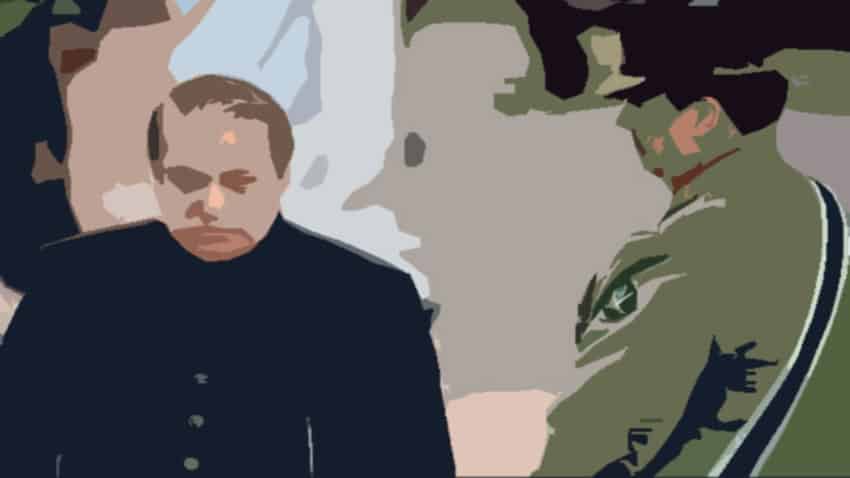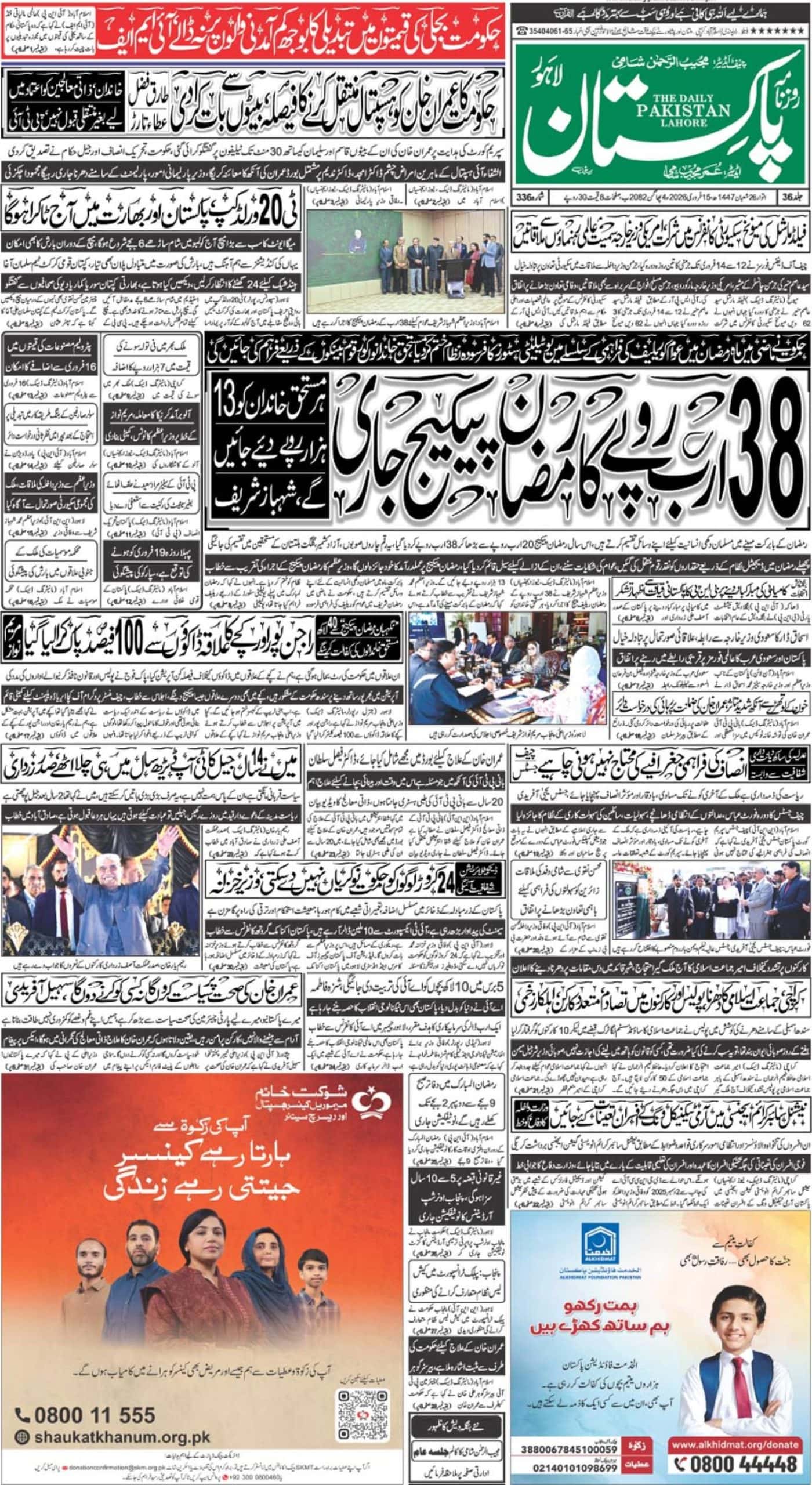Since Pakistan came into being in 1947, much of the country’s security has revolved around India – courtesy Britain which left behind the lingering dispute of Kashmir unresolved and hence allowed it to fester to become now a nuclear flashpoint. New Delhi does not seem inclined to gracefully settle the dispute with Pakistan through negotiation, and prefers that decades-long largely indigenous struggle of Kashmiri people play out through brutal rule and propaganda warfare.
Chain of Indian propaganda on Kashmir and its impact on Pakistan
The uprising in the occupied valley has been largely homegrown with limited external factors such as alleged support from the Pakistani side of the border. India has, over the years, hugely exaggerated the role of material support from Pakistan to demoralize helpless and hapless people in Kashmir.
Underlying geo-strategic muscle flexing over the disputed Kashmir region is played out more through propaganda warfare and less through weaponry. Indian propaganda war machinery is well heard in the Western capitals —– not necessarily because of the effectiveness of Indian policy but due to an undeclared defeat of NATO-led forces at the hands of the Taliban who control much of Afghanistan. New Delhi has been exploiting these Western concerns about the possibility of Taliban’s return to power.
Over the years, Pakistan has been facing a barrage of criticism from Kabul, New Delhi and more importantly from the US, all of which is disproportionate to its alleged support to Taliban apparently to counterbalance Indian influence in Afghanistan. The Taliban are now also being backed by Russia and Iran to counter the rising threat of Daesh in Afghanistan. Nonetheless, India has managed to build up the narrative in the Western capitals that Pakistan is solely responsible for the lingering instability in the landlocked country. This has also been helping India to bracket homegrown uprising in its held Kashmir region with terrorism in the eyes of the Western world.
US geostrategic agenda & gambling of Pakistani politicians
The recent admission in an opinion article by Pakistan’s former ambassador to the US Hussian Haqqani and 2011’s memo gate scandal makes it abundantly clear that People’s Party was clearly in sync with Western and India propaganda about the role of Pakistan in propping up the Afghan Taliban. The top agenda of discussions of Indian, Afghan and American interlocutors seem to mostly consist of complaints against Pakistan military-run secret services, most prominently ISI, for their alleged support to militants in disputed Indian Kashmir and particularly in Afghanistan. They have also been pressurizing civilian leaders for stronger action against the militant groups involved in insurgency outside Pakistan.
From former president Asif Zardari, (2008 to 2013) to the incumbent Prime Minister Nawaz Sharif, political leaders seem to lack the acumen to understand the geostrategic dynamics of the conflicts in disputed Kashmir and Afghanistan, and seek to endear themselves to Western capitals. They inherited a geostrategic policy driven by the tricks and manipulations of the former military dictator General Pervez Musharraf who essentially designed it to perpetuate his military rule which continued till mid-2008.
Going by Memogate scandal, Zardari virtually worked as the US outpost in Pakistan to counter Pakistan army’s strategic agenda in the region. He partially succeeded when top Al-Qaeda leader Osama Bin Laden was hunted down in Abbottabad, but in the process, he got himself completely exposed.
Current political crises and Prime Minister’s dilemma
Pakistan is once again facing an uncertain political landscape partially because of last year’s leaked report to a leading local daily on what transpired in a high level meeting between top political and military leadership on how to handle anti-India militant groups. The intent behind the leaked report probably was to convey a message to the Western world that the military has been the hurdle in taking action against the militant groups such as Jamaat ud Dawa which India believes is responsible for the 2008 carnage in in Mumbai, in which 166 were killed, in addition to many other attacks in disputed Kashmir in the past.
So far there is no clear evidence other than plausible allegations that Prime Minister Nawaz Sharif is also following the footsteps of Zardari to neutralize the army’s geo-strategic agenda in the region. But his modus operandi appears to be altogether different than that of former President Zardari. Zardari, according to Memogate scandal, was clandestinely working hand in glove with Pentagon through Haqqani and his friend Mansoor Ijaz to neutralize the army’s geo-strategic agenda. He had assured the US that the nuclear program would be compromised and that Americans would be allowed on the ground to hunt down more senior leaders of militant groups in return for US patronage to ensure that the military would not overthrow his government in 2011. However, Nawaz Sharif moved through his newly-found support base in progressive media outlets and allegedly leaked the details of a meeting between top civilian and military leaders on how his government feels concerned about the army allegedly impeding efforts of the civil administration to crack down on anti-India militant groups.
The story was timed to coincide with the retiring years of then-army chief General Raheel Sharif in November last year and there was little expectation from the military to retaliate when the top generals were vying to replace him, but that was a huge miscalculation. The story itself did not carry any revelation. Its contents, however, were designed to communicate the impression to the Western capitals that Nawaz Sharif is sincerely pursuing their geo-strategic agenda.
Five months down the line to the controversy, the army in its unusual manner has publically rebuked the Sharif government for failing to fully comply with the findings of the judicial commission and restricting legal action against only two officials while sparing many others.
Army’s options, its liabilities & risk factors
The army may leak the official findings of the judicial commission to a chosen media outlet or may investigate on its own to uncover the real culprits who had leaked the details of a national security meeting.
Even if the army finds plausible evidence about the involvement of Prime Minister’s daughter Maryam Nawaz, who is already being blamed by the opposition parties, it would be difficult for the military establishment to try her or any other political figure on high treason charges.
In Zardari’s case, the evidence is abundantly clear. But no action was taken as the military has skeletons in its own cupboards, allowing tainted politicians to exploit the army.
This has begun again. The Sharif government has formally asked the special court to resume the trial of former military dictator General Pervez Musharraf on high treason charges for imposing martial law against the judiciary when it was all set to disqualify him as the candidate for the presidency in 2007. The trial was abandoned under pressure from the military about two years ago and now requesting the court to resume it means only seeking bargaining with the military not to mess with Prime Minister’s family.
Musharraf has been a liability for the military and that is why army cannot aggressively take on top politicians whom it perceives as “traitors.” Not long ago, Musharraf publically admitted to supporting Afghan Taliban to counter Indian influence, allowing American CIA to set up offices in Quetta and handing terror suspects to the US illegally. That is not all. There are credible reports that in his tenure Musharraf allowed Americans to land in Pakistan without visas. His trial is virtually on hold for masterminding the murder of former premier Benazir Bhutto through militants in 2007. Petitions of lawyers have been pending with Lahore High Court against Musharraf for using militants to attack their gathering in Islamabad in 2007. All this baggage is sufficient for politicians to counter military to take any knee-jerk action against them at a time when the Western capitals are not happy with the army which has pursued its national security agenda in the region. Much of the propaganda against the military on the subject is based on little understanding of hard geo-strategic ground realities in the region.
The military has one good option with which it could settle its scores with Sharif: It could conduct a fair investigation on money laundering charges against the Prime Minister and his family as per the Supreme Court verdict. It isn’t that difficult for the military to get hold of evidence through its own efforts or from federal investigating agencies on how Sharif illegally transferred millions of dollars abroad.














